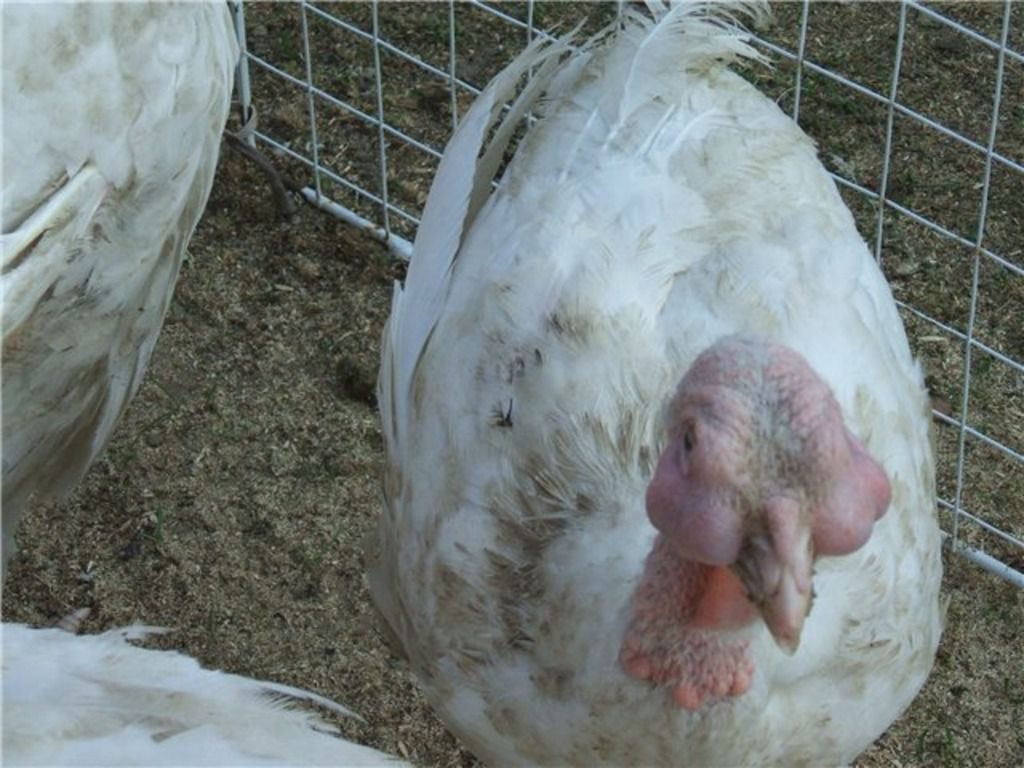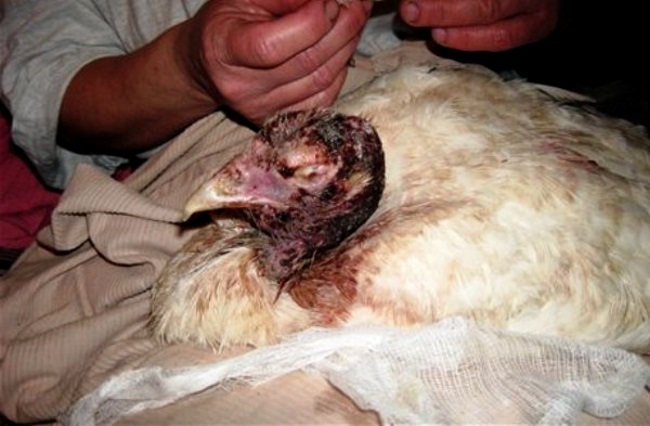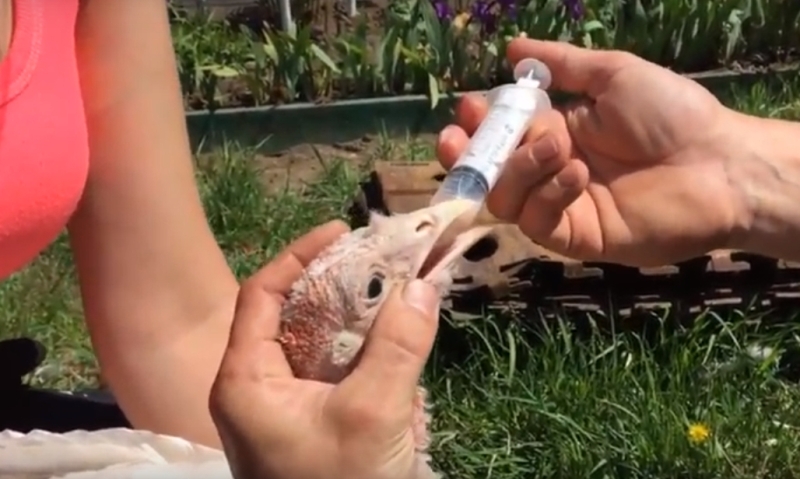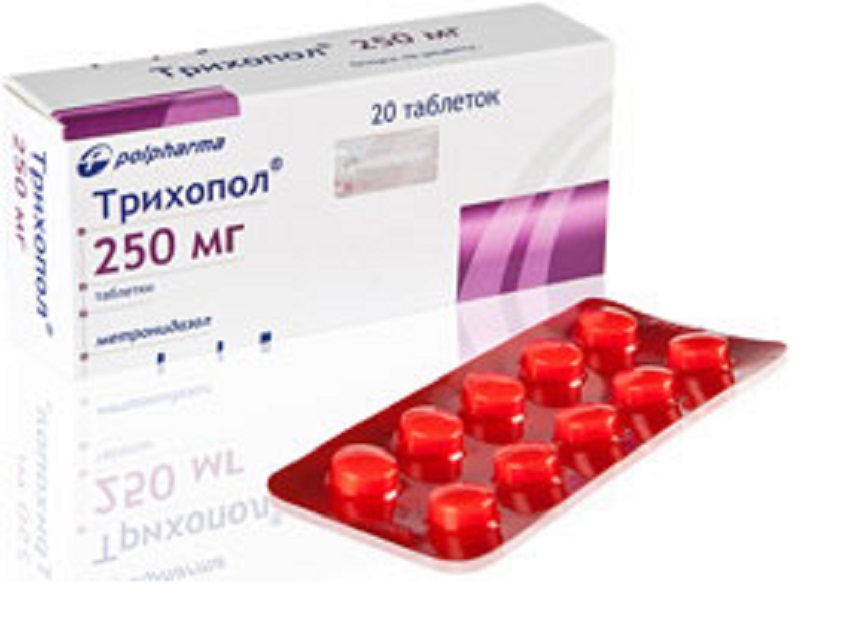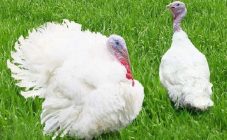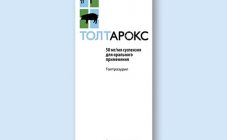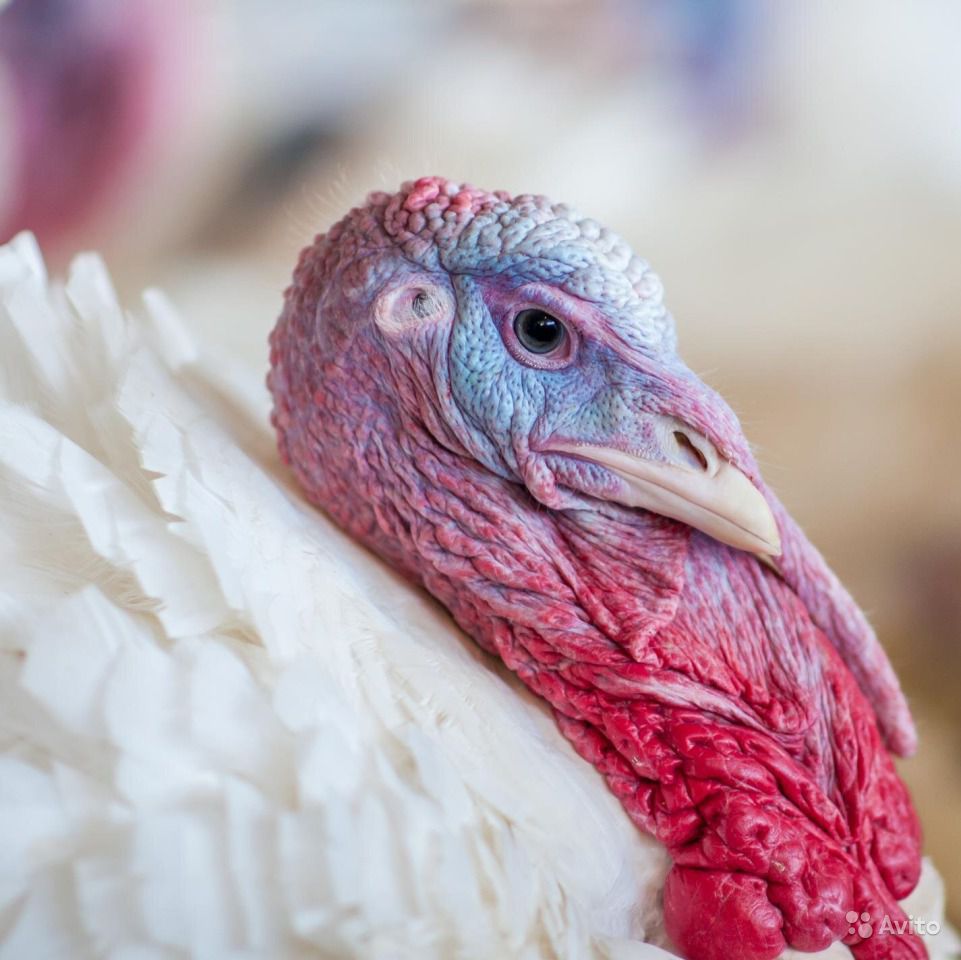Content:
Growing turkeys in recent years has become a popular activity, as dietary meat of this bird is in high demand. Restaurants and shops buy beautiful tasty meat, and in the market it is literally swept off the shelves. In addition, the bird itself - beautiful and important, large in size - is liked by farmers.
The turkeys look solid and it seems that no disease can stick to them, but this is not at all the case. On the contrary, of all poultry, it is turkeys that are most susceptible to various infectious diseases. Turkey poults do not differ in good health, and growing a large turkey from a small chick is a rather complicated and costly process.
Turkeys and turkeys easily and quickly become infected from each other and from birds of other breeds. A disease in a matter of hours can take on the character of an epidemic and destroy all livestock, causing enormous damage to the farmer. Not even adult turkeys and turkeys are susceptible to diseases, namely turkeys. In the event of an epidemic, they die literally in a matter of hours.
Metronidazole is a good highly effective drug for many ailments in turkey poults. In veterinary pharmacies, it is also sold under the name Trichopol. In essence, they are one and the same (they are based on the same active substance), they are simply produced by different companies and therefore are called differently.
Metronidazole is available in tablets and in powder form, it is tasteless and odorless, which allows it to be used and mixed into the feed without being noticed by the bird.
Metronidazole for turkey poults is used in the same dosage as for adult birds, and is calculated according to live weight.
Description of the drug metronidazole (trichopol)
It is a synthetic drug, antiprotozoal and antibacterial, aimed at destroying protozoa and anaerobic bacteria. It is widely used to treat poultry, the disease of which is caused by dangerous microorganisms. Once in the blood, the nervous tissue quickly destroys and destroys the cells of bacteria and protozoa, without affecting healthy organs.
Produced as:
- tablets in plastic packaging weighing 0.5 g, which contain the active ingredient 250 μg;
- powder or granules in bags.
The drug is also used for external use - for treating wounds.
Diseases for which metronidazole is used
Metronidazole is used to treat conditions such as:
- histomonosis;
- trichomoniasis;
- sinusitis;
- coccidiosis.
Coccidiosis is a lesion of the digestive system with coccidia. Symptoms: lethargy and drowsiness, bloody stools, frequent drinking, paralysis. Mortality occurs in 50% of cases of infection.
Trichomoniasis is the defeat of the simplest flagellate Trichomonas. The digestive system and liver are affected. The symptomatology of the disease does not have a clear expression, turkeys, as they say, simply wither away. There is no gain, the bird is sluggish.
Sinusitis is an inflammation of the mucous membranes. In another way, it is called an infectious rhinitis. Symptoms: snot, puffy eyes, weight loss. The bird goes blind and does not find food.
Histomoniasis (black head) — an infection associated with the ingestion of a parasite larva called heterokis. The source is the droppings of diseased individuals and vectors. The infection spreads through dirt on the soles of shoes, equipment, and hatching eggs.Symptoms: yellow-green frothy stools, apathy, disheveledness, trembling. Turkeys drink a lot and often, eat little and lose weight quickly. Feathers matted, wet under the tail and pieces of droppings hang. The head and legs become dark. This disease is the most common one, and if left untreated, the death of the bird quickly occurs. Most often, turkey poults are affected by the age of 2 weeks to 3 months. Metronidazole for turkeys or Trichopolum in this case is a real salvation.
Metronidazole or Trichopolum for turkeys, how to give
For the treatment of adult turkeys and poults, the dosage must be strictly observed so as not to harm the weakened body.
There are 2 methods of administering antibiotic to poultry:
- Give metronidazole 3 times a day, mixing it into the feed. One tablet contains the active ingredient for a single dose per 10 kg of live weight. Dissolve the required number of tablets in water and mix thoroughly with the feed.
- Another treatment option is to mix an antibiotic into your drinking water. For 5 liters of water, you need to dilute 3 g of powder or 12 tablets. The solution is poured into the drinking bowls once a day.
For turkeys, it is better to choose the second method.
Metronidazole: instructions for use for turkey poults
It is easier to prevent any disease than to cure it later. Turkey poults will grow healthy only if the following conditions are met:
- maintaining the temperature in the house according to age;
- regular cleaning and cleaning in the poultry house, periodic change of wet litter to dry;
- correct light mode;
- compliance with the requirements for the area per individual;
- quality feed from a trusted manufacturer;
- prophylactic drinking with metronidazole.
An option for a tablet drinker for those who prefer not to weigh, but to calculate the dose approximately depending on age:
- turkey poults 3 weeks old - 1/4 of the tablet for one turkey;
- 6 weeks of age - 0.5 tablets per turkey;
- 9 weeks of age - 1 tablet per turkey.
After a 5-day course and until reaching 5 months of age, 1 tablet for 1 individual is given for prophylaxis once every 20 days.
Often novice poultry farmers ask themselves the question: what is the dosage and methods of using metronidazole for turkey poults and how to properly drink pets?
Metronidazole (Trichopolum): step by step instructions for use for turkey poults for prevention:
- First, you need to correctly calculate the dose of medicine for all livestock. For this, one medium-sized turkey is weighed. Its weight is multiplied by the number of chicks. The result obtained must be multiplied by the daily prophylactic dose for turkeys of 25 μg per 1 kg of live weight. In a live example, it will look like this: for example, 0.5 kg is the weight of a turkey, which is multiplied by the number of all turkeys, for example, 10 heads, it turns out 5 kg. This weight is multiplied by a daily dose of 25 mcg to give 125 mcg. This amount of active substance is contained in one tablet, which means that 1 tablet of metronidazole will be required for all livestock.
- Next, you need to dilute 1 tablet in 1 liter of water and pour the turkeys into the drinking bowl in the morning. As you drank, that's it! This completes the prevention. Further, only clean water can be poured into the drinker.
- Repeat the procedure for 5 consecutive days.
- Repeat prophylactic drinking in courses of 5 days after 2 weeks.
- Do not forget to calculate the dose on a new basis, depending on the weighing results before each course.
Metronidazole or trichopolum for turkey poults for prophylaxis is absolutely harmless and does not harm health. On the contrary, the use and use of this drug will allow avoiding a number of diseases, which inevitably lead to a decrease in daily weight gain and even death.
Metronidazole very rarely gives side effects, in rare cases, an allergic reaction occurs. In this case, you need to consult a veterinarian who will select another antibiotic.
What can be given with metronidazole
Together with metronidazole, the following folk remedies can be used for prevention:
- include tobacco dust in the feed (1% of the feed weight);
- give turkeys less water, replacing it with fermented milk products: yogurt and whey. The intestinal microflora will then be less favorable for colonization by parasites;
- introduce finely chopped onions and garlic into the diet, 10 g per day per head;
- include chopped leaves of bird cherry, black currant, birch, but little by little;
- add finely chopped needles of coniferous trees, as they kill parasites and serve as a good source of vitamin C;
- daily, give a little yarrow and wormwood in food.
From the description above it is clear that metronidazole can and should be used primarily for the prevention of infectious infections. It is important to follow the correct dosage and, if possible, first consult with a veterinarian.

